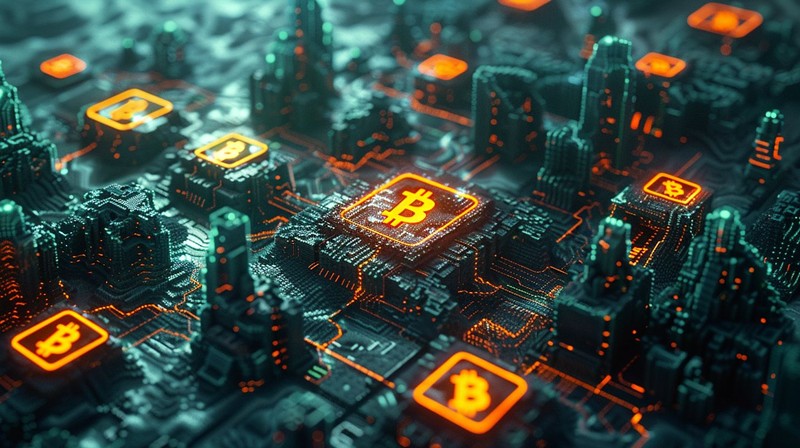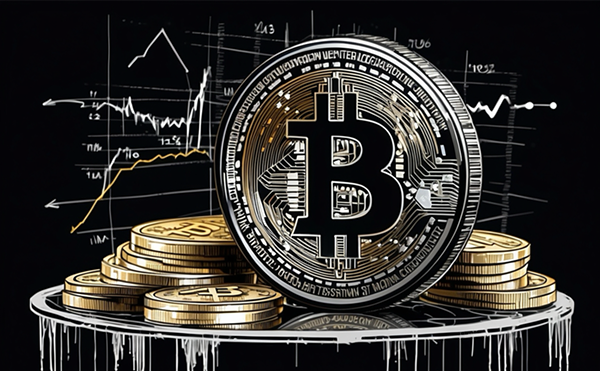Play-to-earn games are innovative video games that blend entertainment with the opportunity to earn real money. Players engage in various activities like battling, farming, completing quests, or racing to earn rewards.
These digital prizes often come in the form of cryptocurrencies and NFTs (non-fungible tokens). Each game utilizes blockchain technology, allowing players to collect unique virtual assets that hold value both inside and outside the gaming world.
Unlike traditional games, play-to-earn models give players full ownership over their earned in-game items. This includes weapons, characters, costumes, or any other asset represented by an NFT.
Gamers can trade these items on decentralized marketplaces for cryptocurrency or even sell them for real-world currency. The system not only makes gaming more interactive but also introduces gamers to the basics of decentralized finance (DeFi) and blockchain economies.
How Play-to-Earn Games Operate
Play-to-Earn games operate by incorporating native cryptocurrency, existing cryptocurrencies, and non-fungible tokens (NFTs) into their in-game economies. Players can earn rewards by participating in gameplay and utilizing these digital assets within the game environment.
Native Cryptocurrency
Many play-to-earn games create their own native cryptocurrency, which acts as the in-game currency. This digital money allows players to buy, sell, and trade virtual goods within the game environment.
These transactions can involve anything from purchasing new characters to upgrading existing ones.
By earning this cryptocurrency through gameplay or special tasks, players accumulate assets that they can exchange for real-world money or other cryptocurrencies. This process ties into the broader blockchain networks, adding a layer of security and transparency to each transaction.
Existing Cryptocurrencies
Moving from the concept of native cryptocurrencies, many play-to-earn games also integrate well-known existing digital currencies. The most commonly used are Bitcoin, Ethereum, and Cardano.
These established coins provide a secure and familiar option for players to trade, buy in-game assets, or even cash out their earnings. Using these cryptocurrencies brings added flexibility to the in-game economy.
Developers choose these popular cryptocurrencies because they're widely accepted and have a stable market presence. Players benefit by having their earnings tied to real-world value, making the gaming experience more rewarding.
This connection between play-to-earn games and existing digital currencies strengthens the bridge between virtual economies and our financial systems.
Non-Fungible Tokens (NFTs)
Non-Fungible Tokens (NFTs) are unique virtual collectibles within blockchain games. Players see them as valuable assets since each NFT has its own distinct value, different from any other token.
These tokens can take various forms, from in-game items and characters to digital art pieces related to the game's universe. Owners have complete control over their NFTs, treating them as personal property that can be traded or sold.
In play-to-earn games, earning NFTs is a significant achievement for many players. They win these tokens as rewards by completing quests, winning battles, or mastering certain game mechanics.
Once earned or acquired, players can keep their NFTs in crypto wallets or sell them on dedicated marketplaces for cryptocurrency. This feature adds a layer of financial incentive to the gaming experience and allows for real-world value transactions based on in-game achievements.
Comparing Play-to-Earn and Traditional Video Games
| Feature | Play-to-Earn Games | Traditional Video Games |
| Monetary Rewards | Players earn money through gameplay. | Do not offer monetary rewards. |
| In-Game Assets | Assets have real-world value. | Assets lack real-world value. |
| Use of Cryptocurrency | Often utilize crypto for transactions. | Lack Cryptocurrency features. |
| Non-Fungible Tokens (NFTs) | Key feature for unique in-game items. | Do not use NFTs. |
| Access Model | Many games are free-to-play. | Usually requires an upfront purchase. |
| Tradeability of In-Game Assets | Assets can be traded or sold for crypto. | Assets are not tradable or sellable. |
| Integration of DeFi | GameFi integrates DeFi, enhancing value. | Lack of DeFi integration. |
| Rewards for Time and Effort | Provide tangible rewards for participation. | Typically do not offer tangible rewards. |
The Role of Blockchain in Play-to-Earn Games
Blockchain technology underpins the mechanics of play-to-earn games, ensuring transparent and secure transactions. By leveraging blockchain, these games offer decentralized ownership of in-game assets, fostering a fair and immutable gaming environment.
Blockchain-Powered MMORPGs
Blockchain technology powers MMORPGs by enabling players to earn real money through in-game activities and acquiring virtual assets with tangible value. In these games, NFTs are virtual collectibles that hold individual worth and can be traded outside the game for cryptocurrency.
Blockchain-powered MMORPGs vary; some are free-to-play, allowing players to accumulate NFT rewards, while others require an initial investment. The global marketplaces created in these games present an opportunity for players to potentially earn a substantial income while playing.
How NFTs Support Skill-Based Games
NFTs in skill-based games provide unique value for players. Players own NFTs and can trade or sell them outside the game for cryptocurrency, establishing a real-world monetary value for in-game achievements.
These NFTs enhance the gaming experience by offering ownership and value beyond the confines of the game environment, making skill-based games more rewarding for dedicated players.
The Current State of Play-to-Earn and Blockchain Games
Play-to-earn and blockchain games have gained immense popularity, offering players the opportunity to earn real-world value through in-game assets. The integration of decentralized finance (DeFi) with gaming, known as GameFi, has seen rapid growth.
It allows players to earn various tokens such as ETH, BNB, TRON, CHARM, RIOT, PRIME, MBOX, MIST, BEANS and SILK alongside NFTs. Notably free-to-play or requiring an initial investment from players to begin participating in the play-to-earn system is indicative of a diverse market catering to different player preferences.
Most Popular Play-to-Earn Games
The Sandbox, Alien Worlds, Gods Unchained, Splinterlands, and Phantom Galaxies are among the top play-to-earn games. These games offer immersive experiences and unique opportunities for players to earn cryptocurrency while enjoying gameplay.
The Sandbox
The Sandbox is a cutting-edge metaverse play-to-earn game that allows players to craft, share, and monetize their own interactive experiences. This innovative gaming platform offers an immersive space for creativity where users can develop virtual worlds with blockchain-backed ownership of in-game assets.
The game is currently in alpha testing and is accessible on PC/Mac platforms, providing an exciting opportunity for gamers to engage in a new era of decentralized gaming experiences powered by NFTs and play-to-earn mechanics.
Alien Worlds
Alien Worlds ranks among the leading play-to-earn games, offering players the opportunity to earn cryptocurrency and real-world value through in-game activities. Players can amass digital assets with tangible worth, which can be exchanged or sold for cryptocurrency or actual money.
These assets include NFTs, unique virtual collectibles that hold individual value within the game's ecosystem. A key feature is its accessibility — while some may join for free and earn NFT rewards through gameplay, others may choose to invest upfront.
Gods Unchained
Gods Unchained, a top play-to-earn game, offers diverse playstyles and is developing a mobile app. The parent company of Gods Unchained, Immutable, has created ImmutableX - an NFT-focused solution for Ethereum.
In 2021, ImmutableX also launched a gas-free marketplace for trading Gods Unchained cards and other NFT projects.
The parent company of Gods Unchained, known as Immutable, introduced its own NFT-based solution called ImmutableX on the Ethereum network. This solution powers the gas-free marketplace for trading various items from Gods Unchained as well as other NFT projects.
Splinterlands
Splinterlands stands out as one of the most popular play-to-earn games, attracting 283 thousand unique active wallets. In this game, NFTs are integral virtual collectible assets with distinct values that players can amass.
Each NFT possesses its own exceptional worth within the Splinterlands universe, adding a layer of uniqueness to gameplay and enhancing the overall gaming experience.
The game offers an immersive environment where players can engage in strategic battles using their NFTs and compete for rewards. With a significant user base and a vibrant ecosystem, Splinterlands has established itself as an influential player in the play-to-earn gaming space, drawing attention from both casual gamers and crypto enthusiasts alike.
Phantom Galaxies
Phantom Galaxies, a space-based RPG game currently in closed beta with an open beta expected later, features an ongoing storyline and first-person combat in spaceships and mechs. The game boasts high-quality graphics and includes voice-acting, aiming to offer AAA quality gameplay with dogfighting-style combat in space.
Embracing the play-to-earn gaming model, Phantom Galaxies enables players to earn rewards while engaging in immersive gameplay.
Associated with Phantom Galaxies are other play-to-earn games like Aavegotchi and Afterland within the P2E gaming landscape.
The Role of Chainlink in Play-to-Earn Gaming Economies
Chainlink plays a crucial role in Play-to-Earn gaming economies by providing reliable automation and powering cross-chain gaming. It enhances the gaming experience by supplying games with data through Chainlink data feeds, ensuring fair and transparent gameplay for players.
Using Chainlink VRF in Blockchain Gaming
Chainlink VRF bolsters trust and impartiality in blockchain gaming by delivering random outcomes for in-game transactions and rewards. This robust solution ensures that players can engage with the game's mechanics and receive rewards without fear of manipulation or bias.
Incorporating Chainlink VRF into blockchain gaming safeguards the integrity and security of gameplay, providing a more transparent and equitable experience for all participants. Additionally, it underpins fair competition and enhances the overall reliability of decentralized gaming ecosystems, contributing to the advancement of play-to-earn economies.
Implementing Chainlink VRF in blockchain gaming fortifies reliability while ensuring that all stakeholders can participate confidently in secure, randomized interactions within the game environment.
Supplying Games With Data Through Chainlink Data Feeds
Chainlink Data Feeds supply games with crucial and reliable data, supporting the robust ecosystem of play-to-earn gaming economies. These data feeds provide real-time information on various market prices, exchange rates, and other off-chain metrics that are essential for maintaining in-game economies.
Chainlink VRF ensures tamper-proof randomness for blockchain games, while also offering verifiable assurances of traits and real-world value for in-game assets like Axies in Axie Infinity.
This integration not only enhances gameplay mechanics but also underpins the seamless operation of play-to-earn game environments.
Reliable Automation
Reliable automation in play-to-earn gaming is crucial for ensuring seamless gameplay and fair outcomes. Chainlink VRF provides a publicly auditable and tamper-proof system that generates randomness, which is vital for maintaining transparency in blockchain games.
This automation underpins the fairness of rewards distribution and game mechanics, enhancing user trust and experience. The incorporation of reliable automation not only streamlines operations but also safeguards against potential manipulation, ultimately contributing to the integrity of play-to-earn gaming economies.
Cross-Chain Gaming
In cross-chain gaming, different blockchains come together to facilitate interoperability, improving the overall gaming experience for users. Chainlink, with its decentralized oracle networks and tamper-proof randomness through VRF, plays a crucial role in enabling cross-chain functionality in blockchain games.
This not only enhances gameplay but also sets the stage for a new era in which gamers can seamlessly navigate diverse virtual worlds and experiences across various platforms and games.
Critiques of Play-to-Earn Crypto Games
Critics argue that play-to-earn games may fuel gambling and addiction, with players investing significant time and money in pursuit of rewards. Concerns about the volatility of cryptocurrencies used in these games raise worries about financial risks for players.
Some critics fear that focusing on profit maximization in the play-to-earn model could compromise game quality, shifting developers' focus from creating enjoyable gaming experiences to solely pursuing monetary gain.
Additionally, environmental impact concerns are raised, particularly surrounding energy consumption and carbon footprint related to cryptocurrency usage.
The Future Potential of Play-to-Earn Games
Play-to-earn games hold vast potential for reshaping the gaming industry and introducing novel forms of economic interaction. As blockchain technology continues to evolve, play-to-earn games are anticipated to foster a more inclusive gaming environment, enabling players to earn real value from their in-game efforts.
The fusion of decentralized finance (DeFi) with gaming, as seen in GameFi, opens up new avenues for players to engage in yield farming, stake native governance tokens, and participate in cryptocurrency ecosystems within the virtual game realm.
Furthermore, the integration of non-fungible tokens (NFTs) provides players with true ownership of digital assets and incentivizes skill development within gameplay.
The future outlook for play-to-earn games also involves addressing concerns surrounding "pay-to-win" dynamics and encouraging fair competition among gamers. With advancements in smart contract technology and community governance models through decentralized autonomous organizations (DAOs), play-to-earn ecosystems may embrace more equitable wealth distribution while minimizing unfair advantages based on financial resources alone.
This signals an exciting transformation within the gaming landscape—one that affirms the potential for play-to-earn games to nurture a symbiotic relationship between entertainment and real-world economic empowerment.
For more information email [email protected]







